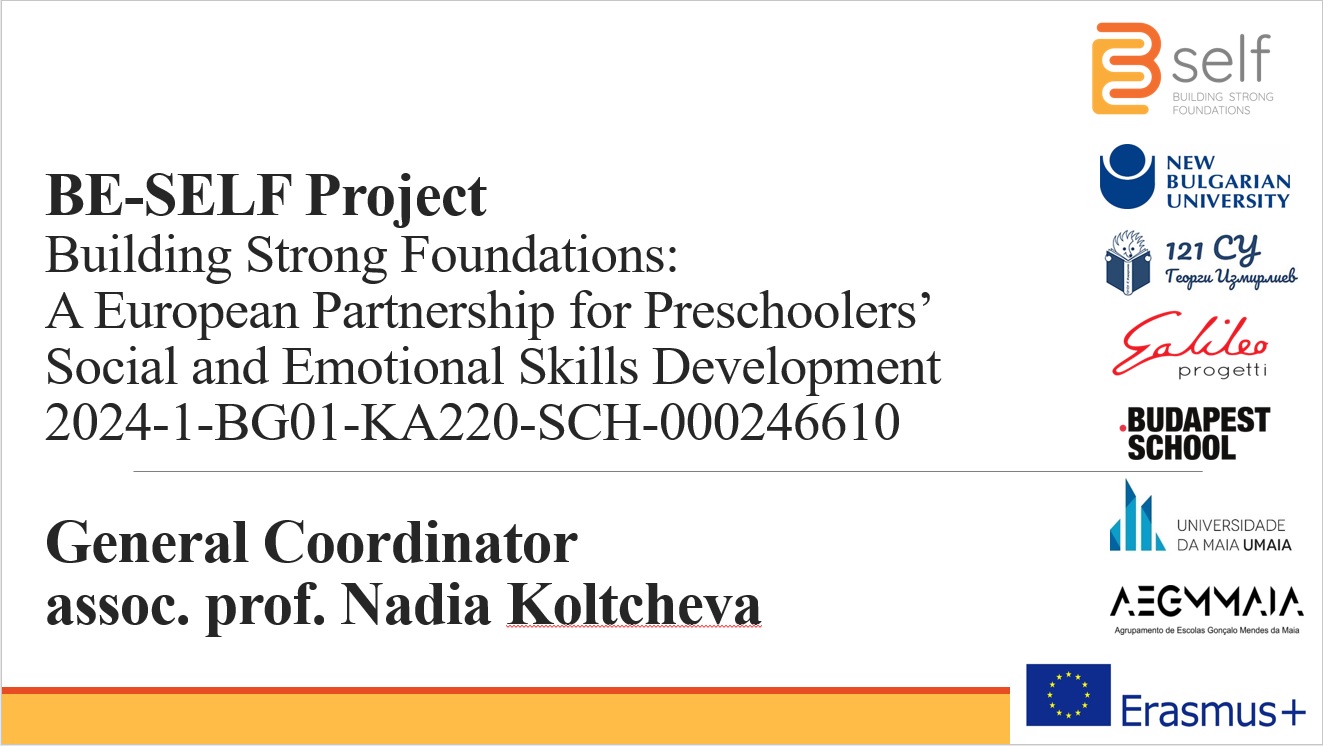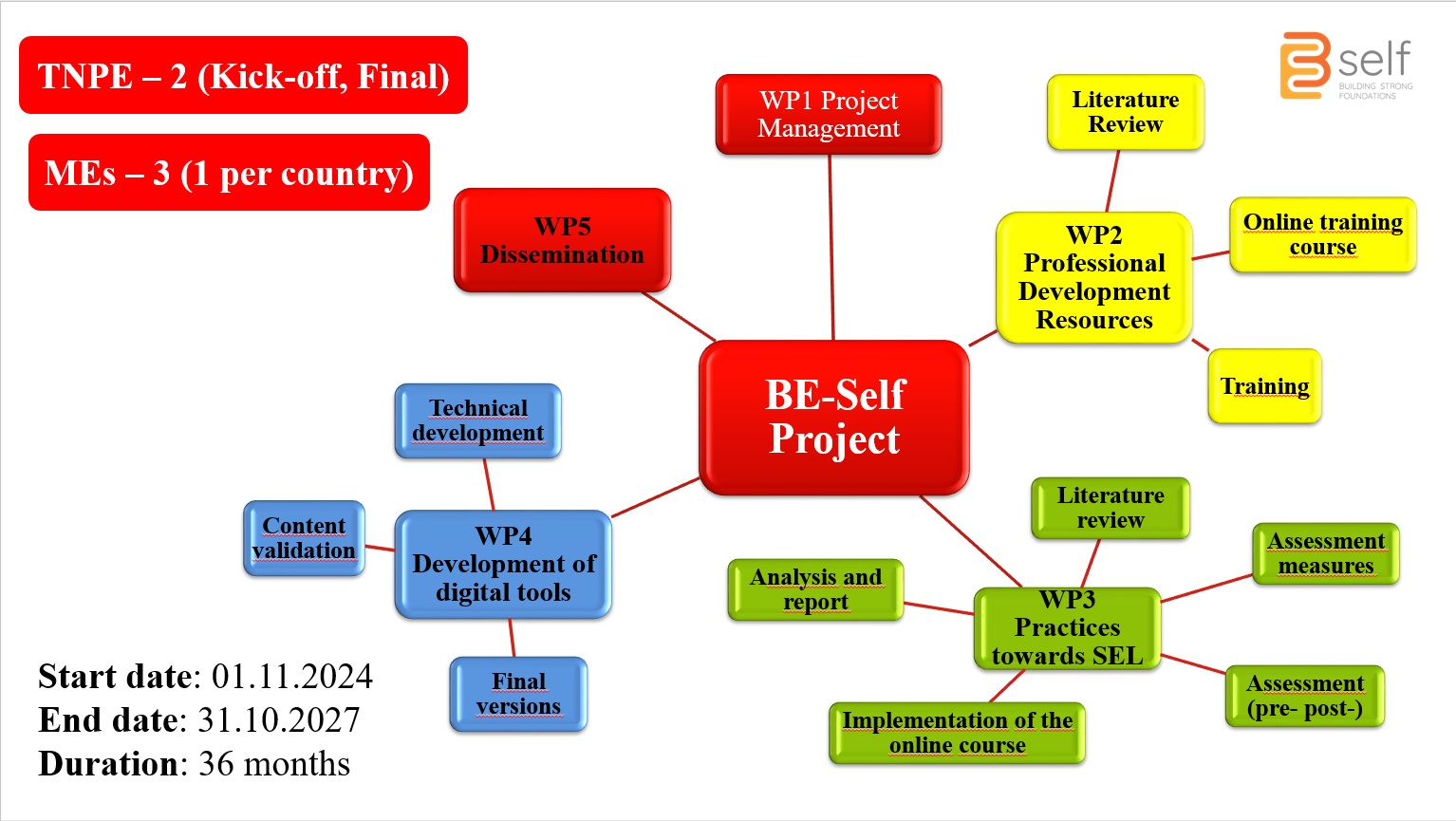

BE-Self Project
Building Strong Foundations: A European Partnership for Preschoolers’ Social and Emotional Skills Development
2024-1-BG01-KA220-SCH-000246610
Social and Emotional Learning (SEL) is an important part of education that encompasses a range of skills, attitudes and behaviours that help individuals to understand and manage their emotions, build positive relationships and make responsible decisions. SEL has been shown to have numerous benefits for students, both in the short and long term. It helps by fostering a positive learning environment where students feel supported and engaged. SEL promotes the development of important life skills crucial for success in life in general and can help individuals navigate challenging situations, make positive contributions to their communities, have a positive impact on mental health and well-being. By promoting SEL in schools, we can help to create a more positive and supportive learning environment that prepares students for success in all aspects of life.
Teachers play a key role in the implementation of programs and practices aimed at SEL in the classroom. However, not all school contexts pay the same attention to these components and/or show the same appreciation or attitude toward the importance of such practices and skills in the education of learners. Research has shown that teachers or contexts characterized by positive attitudes and beliefs towards SEL are more likely to incorporate practices aimed at their teaching and are better able to support the social and emotional needs of their students, resulting in positive outcomes. Conversely, teachers or contexts that display negative attitudes or beliefs towards SEL may be less likely to prioritize such training or may implement SEL practices inconsistently.
That’s why it is of great importance to develop children’s SEL. Projects that aim at improving the educational practice by understanding the unique context in each school and providing the tools and support for teachers are of enormous value and have long-term potential. Our project aims exactly at that. By analysing the educational context in each school and providing guidance, support and digital tools, we aim at improvement in social and emotional skills in children but also their learning, teachers’ competencies and qualifications and the education context as a whole.
The aim of the BE-SELF project partners will be to develop professional development tools and procedures that can assess, monitor and enhance school teachers’ SEL attitudes and the implementation of SEL practices infused in the school curricula. Two main priorities are central to the project, namely:
(1) supporting elementary school teachers’ professional development to foster SEL practices that enhance student well-being and academic and social success;
(2) open education and innovative practices in a digital era by using a professional development approach, that builds on flexible and open digital education resources to support professionals in delivering high-quality education through improvements in children’s social and emotional skils.
The BE-SELF project aims to improve SEL in European schools by developing professional development tools and procedures that can assess, monitor, and enhance school teachers’ SEL attitudes and implementation of SEL practices. The motivation for this project is based on the recognition that SEL is a critical component of education that has been shown to have a positive impact on students’ academic achievement, well-being, and overall success in life. However, many teachers may not have the necessary skills and training to effectively incorporate SEL into their teaching practices.
The BE-SELF project seeks to address this gap by providing teachers with the knowledge, skills, and resources needed to effectively promote SEL in their classrooms. By improving the quality and effectiveness of SEL teaching, the project aims to support the academic achievement and well-being of all students, including those who may be at risk of learning disadvantage or early school leaving. Additionally, the project will promote the importance of cultural sensitivity and respect, promoting inclusivity and diversity in the classroom.
